Centers
About NITech
- Cybersecurity Center
- Risk Management Center
- Organization for Co-Creation Research and Social Contributions
- Health Support Center
- Information Technology Center
- Center for Research and Development in Higher Engineering Education
- Creative Engineering Education Center
- Education Center for International Students
- NITech Center for Diversity and Inclusion
- Center for Innovative Young Researchers
- NITech Frontier Research Institutes
- Quality Innovation Techno-Center
- NITech Doctoral Global Academy
- Center for Research on Assistive Technology for Building a New Community
- OptoBioTechnology Research Center
- Advanced Ceramics Research Center
- Innovation Center for Multi-Business of Nitride Semiconductors
- Research Center for Nano Devices and Advanced Materials
- Center of Biomedical Physics and Information Technology
- NITech Artificial Intelligence Research Center
- Advanced Disaster Prevention Engineering Center
- Center for Future Communications Research
Cybersecurity Center
The Cybersecurity Center was established in March 2017 to grasp information security incidents that occurred at our university, and to quickly and appropriately take measures necessary to prevent, restore and prevent recurrence of damage. The Center consists of two departments: 1) the security management department and 2) the security technology department. We also collect and analyze information on information security incidents, formulate measures to prevent recurrence, and support CISO decision-making on information security.
Risk Management Center
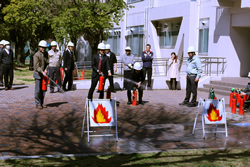
In the event of an emergency or natural disaster, NITech's Risk Management Center is prepared to act promptly to maintain essential functions of the university; to protect the lives of students, faculty and staff; and to preserve the property and honor of NITech. The Risk Management Center handles emergencies and implements any required crisis management actions during times of normal operations. The center consists of two sections: the Disaster Prevention Section, and Legal Risk Section.
- The main functions of the Disaster Prevention Section are (1) to prepare disaster prevention procedures and plan countermeasures; (2) maintain the health and safety of NITech students, faculty, and staff; (3) educate NITech students, faculty, and staff concerning disaster prevention; and (4) take countermeasures and contain damage in the event of an emergency.
- The main functions of the Legal Risk Section are to (1) establish measures to prevent the occurrence of legal incidents; (2) take countermeasures if a legal incident occurs and prevent its recurrence; and (3) provide media relations during emergencies.
Organization for Co-Creation Research and Social Contributions
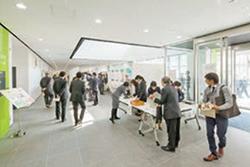
To strengthen the co-creation relationship between the organizations and industry, the Center for Social Contribution and Collaboration and the Instrument and Research Technology Center were integrated and reorganized into the Organization for Co-Creation Research and Social Contributions.
The Organization is organized in three divisions: the External Affairs Division, which is responsible for planning organizational research projects; the Business Creation/Human Resource Development Division, which is responsible for managing and operating joint research and social collaboration projects and human resource development projects; and the Equipment Sharing Division, which is responsible for promoting management and utilization of educational research facilities.
With this new organizational structure, we will fulfill the university's role of open innovation, expand the "exchange of knowledge and human resources", and make proposals to ensure attractive organizational results.
Health Support Center
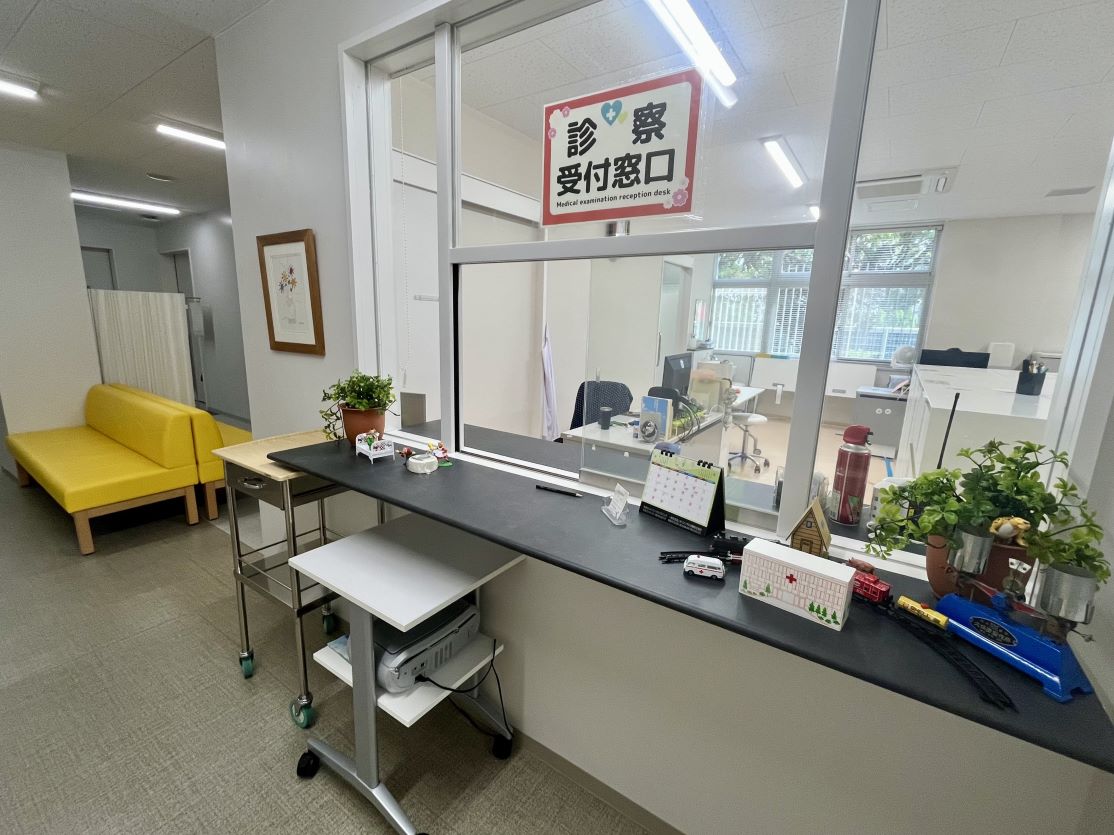
This Center provides health support for all members of the university, and offers early diagnosis and treatment, prevention of relapse, and onset prevention. Under the School Health and Safety Law together with the Labour Safety and Health Law, we organize a health check for all workers and students. Anyone can have a personal consultation with an internal physician (MD), psychiatrist (MD), clinical psychologist, or nurse. First aid is also available.
Information Technology Center
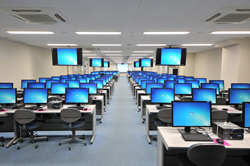
This center operates and manages NITech's computer systems, including the Meikoudai Advanced Information Network System (MAINS). Its objective is to contribute to the advancement of education and research and to NITech's relationship with the local community by providing information systems and support in education, research, academic repository services as well as in other administrative fields.
Center for Research and Development in Higher Engineering Education
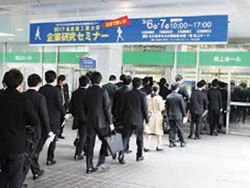
The Center for Research and Development in Higher Engineering Education was established in April 2005 to support the engineering education system of NITech. The Center consists of three offices: the Admission Research Office, the Educational Research and Development Office, and the Career Support Office.
Creative Engineering Education Center
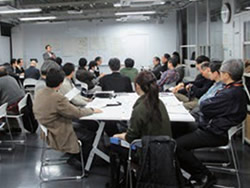
The Center aims to plan and support the implementation of the new educational curriculum of the Creative Engineering Program, which provides students cross-disciplinary viewpoints as well as multilateral values based on a deep understanding of science and technology and proficiency in engineering methodologies.
The Center comprises three departments: 1) the Creative Engineering Educational Planning and Evaluation Department, to plan and evaluate the Creative Engineering Program; 2) the International Cooperative Education Department, to coordinate international cooperation on education and prepare educational materials; and 3) the Social and Industrial Cooperative Education Department, to support business and social project-based learning and coordinate regional cooperative hands-on studies.
Education Center for International Students
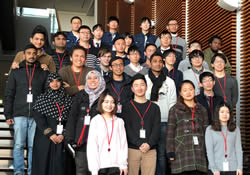
The Center aims to support the educational activities of international students through Japanese language courses and various activities related to Japanese culture. The Center provides three Japanese language courses for international students. Each course consists of several classes which meet the language fluency level and the purposes of each student. The Center thereby helps international students develop into internationally focused individuals who can play an active role in international society. The following are examples of our activities: tours of industrial sites and seminars on Japanese culture, career support seminars, and multi-cultural tours with Japanese students.
NITech Center for Diversity and Inclusion
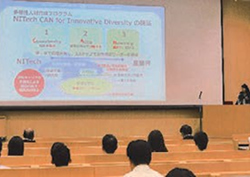
The NITech Center for Diversity and Inclusion (CDI) was established in October 2017, replacing the Center for Gender Equality. The CDI's missions are to encourage the advancement of female researchers' careers and to create an inclusive environment for researchers with family care responsibilities. To fulfill these missions, the CDI conducts various activities that help enhance research abilities and support to balance research and family commitments based on the NITech CAN program, which aims to develop and utilize diverse human resources. Furthermore, we commit ourselves to building a system, in cooperation with local industry, to train the next generation by organizing an alumnae network and conducting the management training course for female engineers.
Center for Innovative Young Researchers
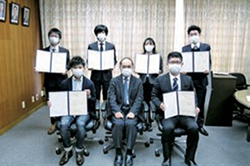
The Center for Innovative Young Researchers was established in 2009, and has supported young researchers conducting interdisciplinary and integrated research that lead to new academic achievements at the international level. Since 2009, the Center has fostered 18 innovative young researchers through the "Program to Train Innovative Young Researchers through Industry-Academia-Government Collaboration" and since 2013 through the "Program to Disseminate and Establish a Tenure Track System" financed by the Ministry of Education, Culture, Sports, Science and Technology. Since 2015, the Center has taken charge of tenure review for all newly employed research associates in order to train young researchers from an overall institutional standpoint. 28 Tenure Track assistant professors and STARTUP Assistant Professor belong to the Center as of April 2021.
NITech Frontier Research Institutes
NFRI promote advanced and integrated researches and international joint researches.
NFRI also cultivate innovation leaders.
Quality Innovation Techno-Center
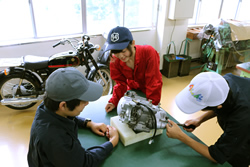
The Quality Innovation Techno-Center was established by a ministerial ordinance in April 2002. This center provides advanced practical education on quality innovation for students and people with full-time jobs. It also conducts research and development on educational systems for quality innovation. This center mainly aims to support young researchers and engineers to realize their innovative activities and dreams. It encourages these young people to develop an adventurous and bold spirit toward pursuing quality innovation in the future, by offering an ideal environment for technical education. Examples of our activities are as follows: 1) Further enriched practical education through workshops for students and graduate students; 2) Recurring educational courses for industrial engineers; and 3) Technical lectures and working practice for junior high and high school students.
NITech Doctoral Global Academy

Based on the collaboration with the University of Erlangen-Nuremberg, we promote the development of global human resources required by local industries through a world-class doctoral education.
Center for Research on Assistive Technology for Building a New Community
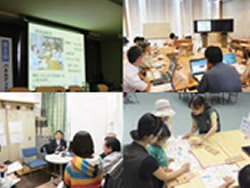
Science and technology are still expected to solve issues in Japan as a hyper-aged socity. It is not enough to simply contribute toward helping those who are aged. The more anticipated contribution is to assist them to participate in their communities. Thus, it is indispensable for us to have fresh ideas on technologies that focus on the living areas of older people, ideas that can emerge by connecting people with science, society, and engineering. From this point, the Center aims to carry out continuous and comprehensive research on assistive technologies for building new communities, through fieldwork and deep study. Such new communities would enable people of all generations to cooperate and live together happily.
OptoBioTechnology Research Center
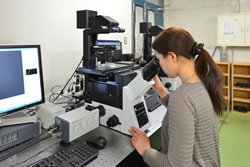
Life science utilizing optotechnology is a rapidly growing research field. "Optogenetics" has recently brought about outstanding breakthroughs in brain science, while the established "optical measurement" technique was awarded the Nobel Prize in 2008. The Center contributes to our community by creating a new field of industry, which is based on an engineering approach to life science that focuses on light reactions. By elucidating the physics of light, and in order to manufacture bio-inspired new materials, we aim to improve the health-related quality of life. The membrane protein rhodopsin, for instance, which is a light- driven ion-pump that has already been applied in the field of optogenetics, is still to be optimized to give the best performance and safety. Across three departments, we will spur each other on in enhancing our respective research activities in tight collaboration and in promoting the integration of interdisciplinary research fields beyond the Center.
Advanced Ceramics Research Center
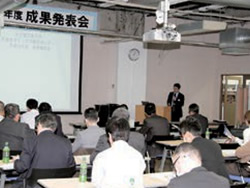
Our mission is research into fundamental ceramics science and development of advanced intelligent ceramics for solving environmental and energy problems in the 21st century. Our Research Center was established in 1973 at the Tsurumai (Nagoya) campus as the Ceramics Research Laboratory (CRL), which in 1977 moved to Tajimi City. In 2012, the CRL was reorganized into the Advanced Ceramics Research Center (ACRC) for the purpose of developing intelligent ceramics. The pottery industry in this East-Gifu region has a long history. The ACRC has long supported industrial research in many companies in this local area and has contributed to ceramics science as well as academic education for research engineers worldwide. Recently, national projects and collaborations with other organizations and companies have led to excellent academic and technological work in the field of ceramics and related materials.
Innovation Center for Multi-Business of Nitride Semiconductors
The Innovation Center for Multi-Business of Nitride Semiconductors was established as the base of industry-university-government cooperation for developing practical applications of GaN-based power devices with NITech's pioneering crystal growth technique to fabricate GaN film on Si substrates. The project realizes energy-saving semiconductors with high-added value by taking advantage of the existing production lines for Si devices in collaboration with corporations dedicated to developing equipment for crystal growth and device processing, large-diameter and high-quality materials, and devices for home appliances, communications, automobiles, etc. The development processes of equipment, materials, and devices are permanently conducted under one roof.
Research Center for Nano Devices and Advanced Materials
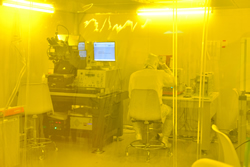
The Research Center for Nano Devices and Advanced Materials was established on April 1, 2003, following the wind-up of a 10-year project―the "Research Center for Micro-Structure Devices"―on March 31, 2003. The purpose of the Center is to conduct research on the physical properties of materials with a micro-structure (nano-structure) and their application to electronic and photonic devices, taking over the research work into "Heteroepitaxial Crystals with Micro-Structures", "Basic Characterization", and "Device Fabrication and Its Characterization" studied at the previous research Center.
Center of Biomedical Physics and Information Technology
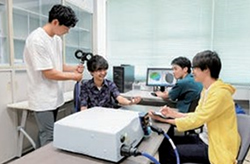
This center integrates the fields of biomedical physics and information technology to bring novel solutions at the forefront of complex problems in public health, medical care, and product design by application of data science that combines high quality and large volume of computational data with measurement data. The goal is to foster individuals with multifaceted and creative thinking by founding a new research field in collaboration with leading research centers in Japan and overseas.
NITech Artificial Intelligence Research Center
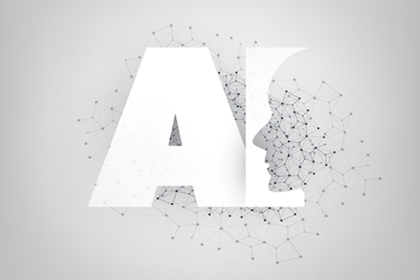
The NITech AI Research Center contributes toward the development of society and industry as an "Innovation Hub" based on realistic AI technologies. Through tight collaboration with related engineering areas in NITech, we provide realistic solutions to issues and problems in society and industry. The NITech AI Research Center pursues the following four missions: (1) Develop advanced and innovative intelligent computing technologies; (2) Contribute to industries and regional society with wide-ranging outputs; (3) Engage in global activities in academia and industry; and (4) Provide education in AI technologies. To this end, the NITech AI Research Center founded the Advanced Intelligent Computing Research Division, Data Science Division, Information Technology Division, and Society Cooperative Research Division. In particular, the NITech AI Research Center has committed itself to strengthening Japanese industry and academia. For example, AI consortium provides opportunities for industries in Tokai-area to learn AI technologies, and co-create AI-based solutions for their industrial problems.
Advanced Disaster Prevention Engineering Center
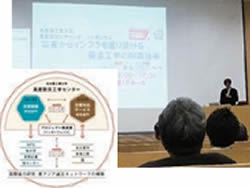
Prediction, mitigation and control of huge natural disasters such as earthquakes, tsunamis and typhoons will be the final goal of ADPEC. By clarifying the process and mechanism of each type of natural disaster and developing various kinds of technologies utilized to deal with such huge disasters, we aim to establish a world leading research Center for disaster prevention and mitigation.
Meanwhile, we will make every effort to help prevent and mitigate huge disasters based on the viewpoint of useful and easily acceptable technologies. We always keep in mind that the technology we develop should be able to make a real contribution to the construction of a robust society that can stand firm in the face of a natural disaster.
Center for Future Communications Research
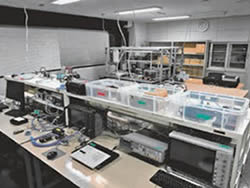
This center is working in industry-academia collaboration as an R&D base for highly reliable communication research that will support a safer and more secure digital society in the future, and for developing its international standardization. Extremely high reliability is required for various communication systems (electrical/optical wired communication and wireless communication) that connect to digital platforms that will become the social infrastructure of the future. We are promoting research specializing in hardware reliability, mainly across three pillars: electromagnetic compatibility, quality of service, and security. In addition, this center aims to contribute to the industry as a test house for conformity testing, etc. by advancing the development of communication performance evaluation equipment.

 Japanese
Japanese